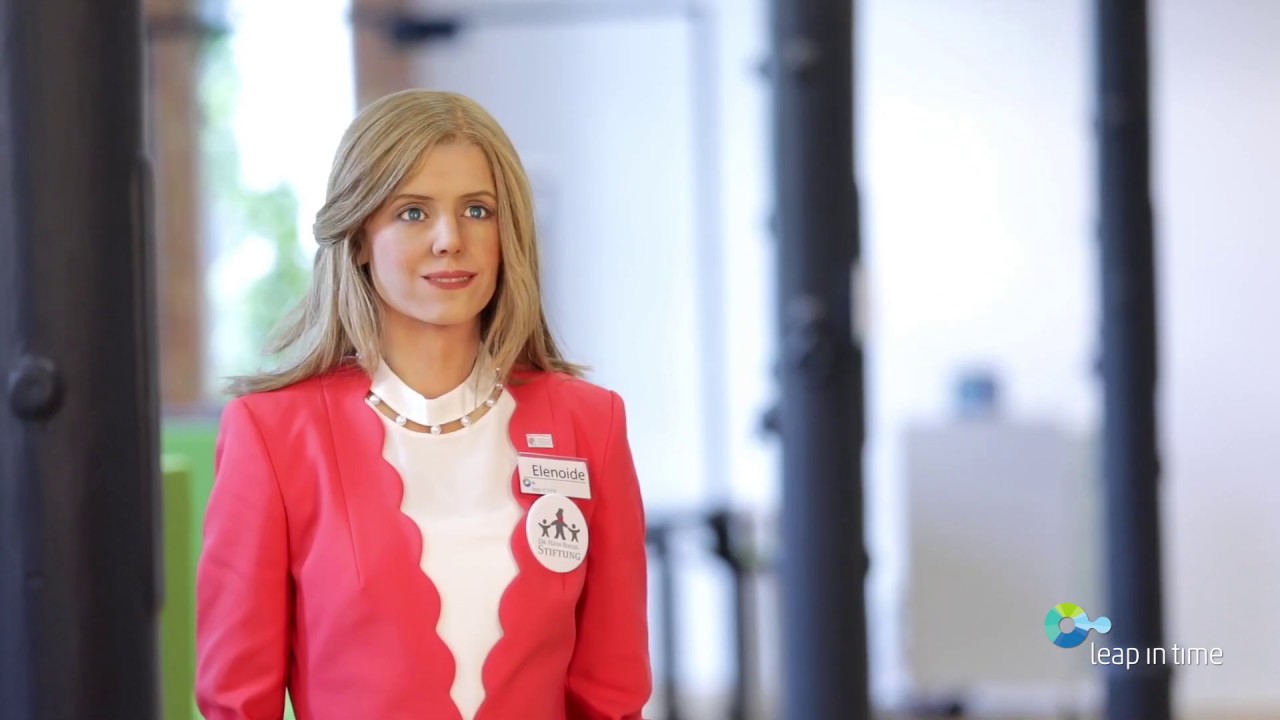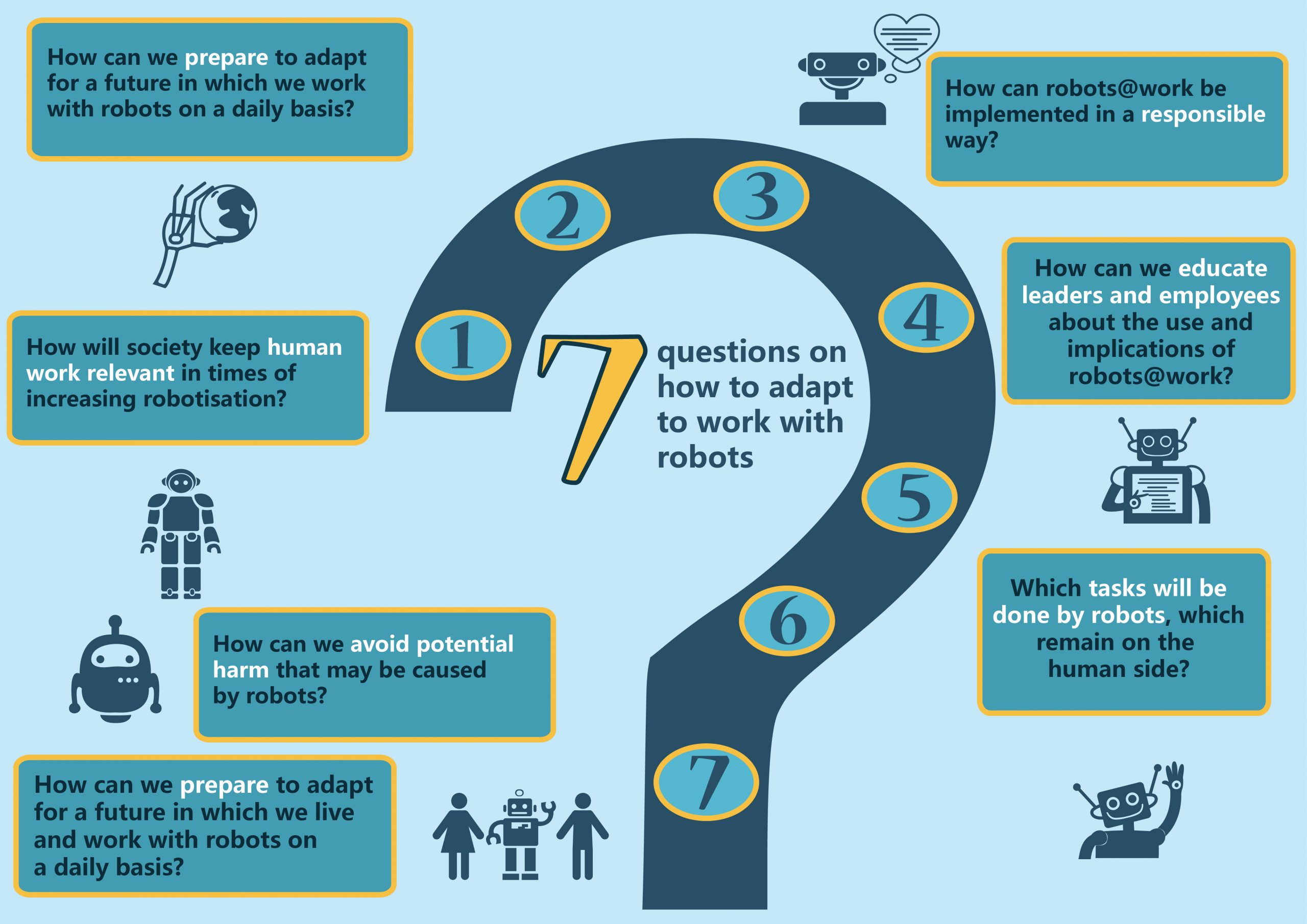Future of Work
In our research about the future of work, we focus on knowledge workers, i.e., those who work primarily in a conceptual or project-based manner.
Important research questions are:
-
- How will different working worlds of the future look like?
- How do new information and communication technologies (ICTs) change the way we will work tomorrow?
In terms of the future or work, work-life balance is another particularly important topic. Especially in times when working from anywhere or in pandemic times, in which the home is experiencing a new era, topics such as boreout, i.e., boredom and crisis of meaning due to underchallenge or lack of feedback, gain special importance.
Important research questions are:
-
- How do information and communication technologies affect the work-life balance of knowledge workers?
- Is boreout the new challenge in the working world of the future?
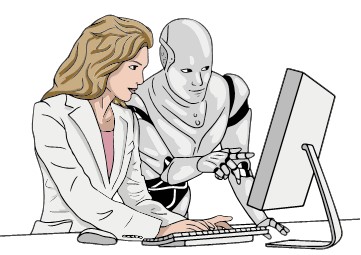
New technologies in the future of work
(© leap in time)
Leadership
In terms of leadership, we focus on different levels. Regarding leadership, we have focused on cross-cultural differences during locally-dispersed leadership, i.e., in situations in which leaders and employees work from different places. Furthermore, we have examined which leadership styles are most promising for the future.
Important research questions are:
-
- How can managers successfully lead employees across countries and cultures?
- Which leadership style is appropriate in times of digitalization and AI?
- How can leaders deal with the crisis through empowering leadership?
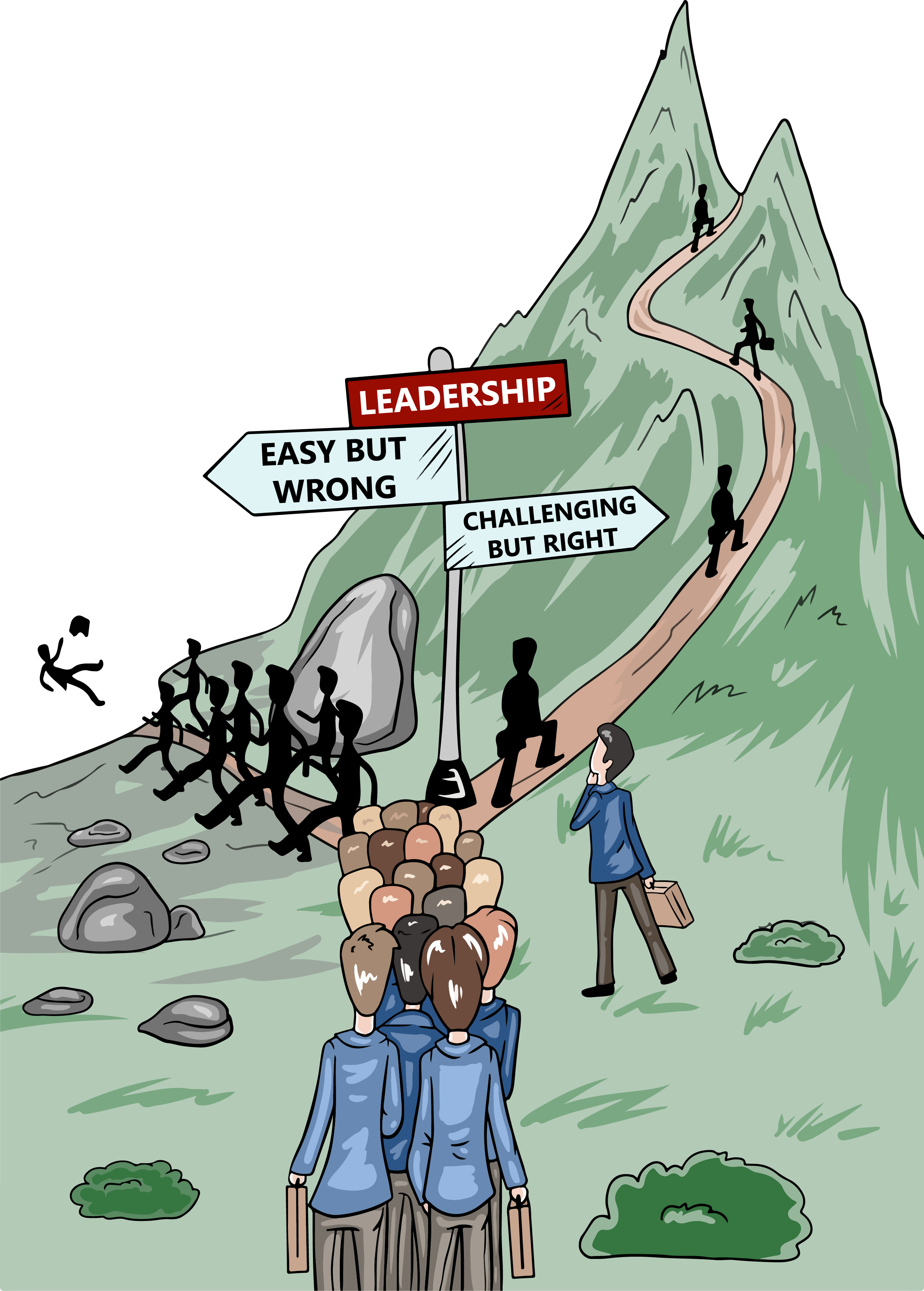
Empowering leadership in the future of work (© leap in time)
Human-Robot Interaction

Real life experimental setting for human-robot interaction
(© leap in time)
Robotic assistants in firms
Here, we conducted an experimental series with the Merck Group in Darmstadt. Please find more information here.
Important research questions are:
-
- Which type of tasks can service robots perform in a real company setting?
- To which extent do employees accept a robotic expert?
- How does a service robot’s performance differ from human performance?
Human-robot teams
Another research focus on human-robot interaction relates to human-robot teams or the placement of robots as leaders in teams.
Hereby, we focus on the following research questions:
-
- To which extent do human users accept robotic team members or even team leaders?
- Which roles can a humanoid robot take as a member of a team?
- How do mixed human-robot teams perform as compared to human-human teams?
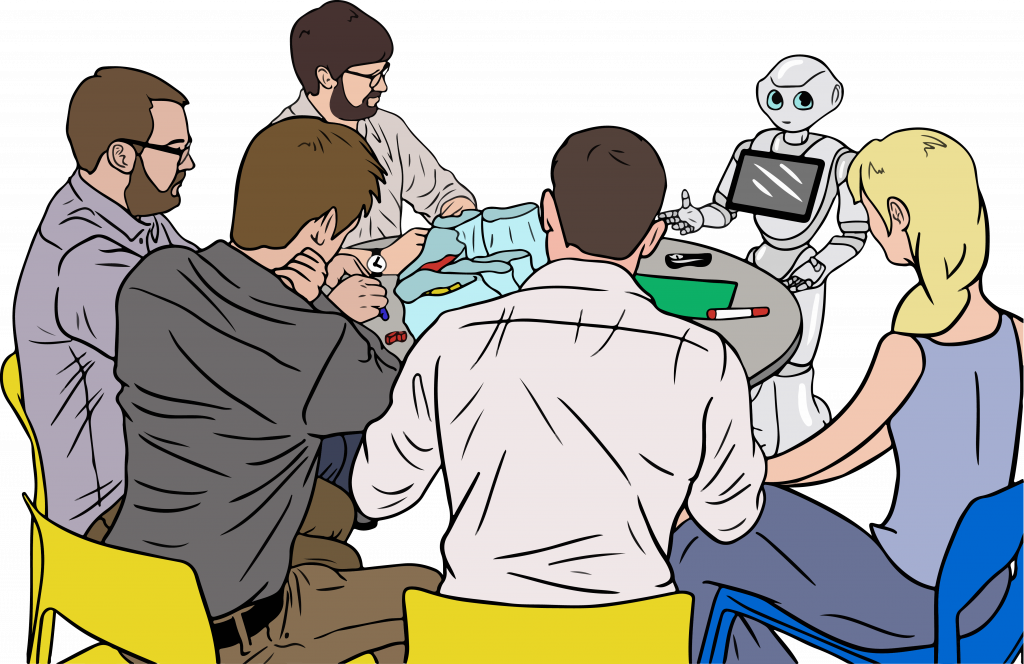
Experimental setting for human-robot teams
(© leap in time)

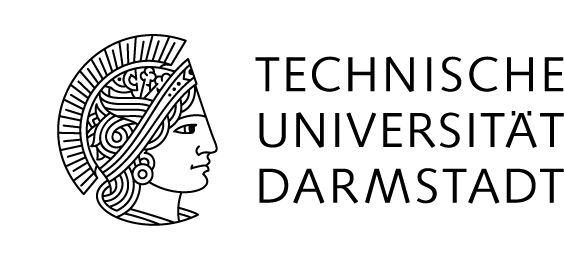
leap in time
As a research institute, leap in time is concerned with a holistic approach to the future of the world of work. We are your competent partner for questions concerning the future of the world of work and advise you on the necessary change processes. Furthermore, we support you in training your management team in Leadership 2030.
In close cooperation with international scientists and renowned companies, we have developed the Future Work Navigator as a strategic approach for companies that want to systematically assess and increase their future viability.
